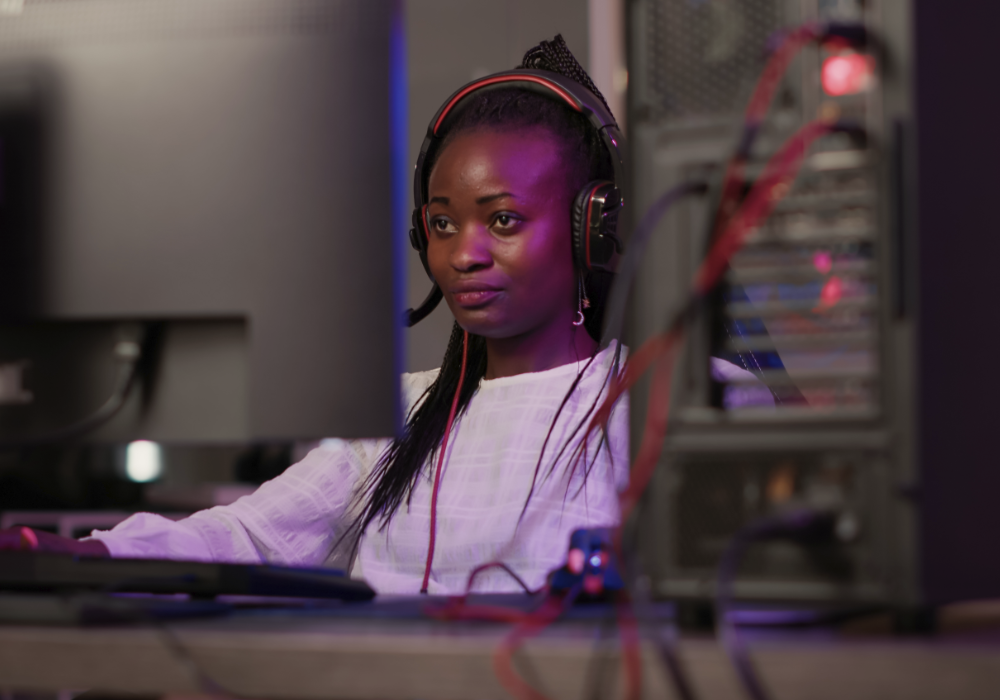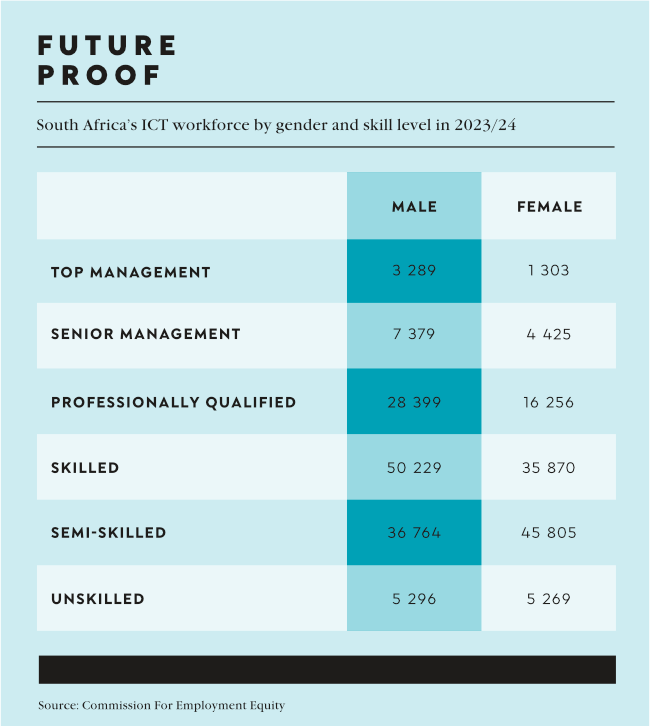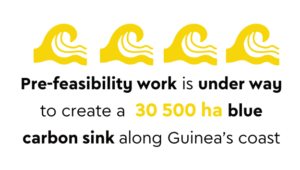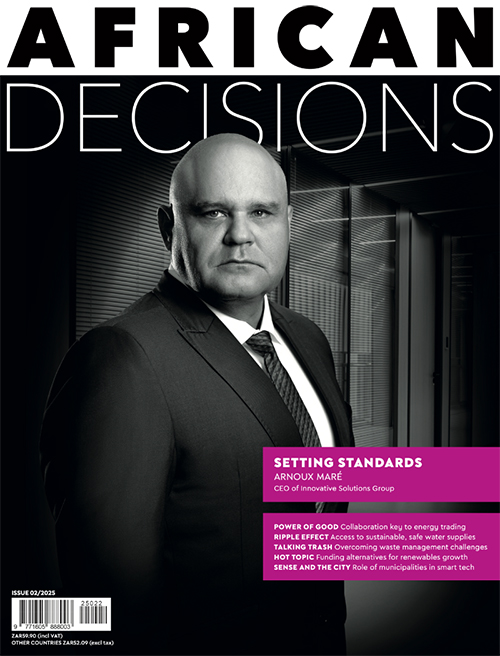There’s an unwritten law in Africa’s ICT industry. Odda Sanny Niyegena is one of its rare exceptions. A Rwandan female high school graduate (and yes, female is important), she took part in an African Girls Can Code Initiative (AGCCI) boot camp last year, held under the auspices of UN Women. There, high in the mountains of the Rulindo District, Niyegena and 22 of her fellow grads gathered at the Integrated Polytechnic Regional Centre at Tumba, where they spent two weeks learning coding and robotics. The boot camp included sessions on gender equality – and, again, that’s important.
Each boot camp participant was also enrolled in Siemens’ SieMent EmpowHer Mentorship programme, where they were linked with a female mentor within the ICT sector. ‘Learning about the Siemens mentorship programme was very inspiring,’ said Niyegena. ‘Getting the opportunity to be linked to a role model and mentor who can guide me will greatly help me in my journey, enabling me to also be impactful to other girls in the near future.’
Niyegena is an exception because ICT has, historically, been dominated by men. And it’s not just that tech is friendlier to men; the space is actively hostile towards women. In a 2022 Ipsos survey conducted across 117 countries, one in two female scientists said they’d experienced sexual harassment at work. Some 65% of respondents said it had negatively affected their careers.
‘The tech industry, especially the telecoms industry, can be daunting as it has heavily been perceived as a male-dominated industry,’ Shalini Boodhooa, MTN alliance and partnerships manager, told Telecom Review Africa recently. ‘Women in the ICT industry often face gender bias and stereotyping, which can hinder their career progression. This includes assumptions about their technical abilities and leadership potential. The lack of mentorship and role models is another significant challenge. Women often struggle to find mentors who can guide them through their career paths and provide support.’
Upskilling women in tech is an industry priority, not only to achieve gender equity but also to close Africa’s digital skills gap – especially as cybersecurity becomes more and more of a challenge for businesses across the continent. ‘While cyber inequity is a major issue, the growing skills shortage is a major issue that will make addressing this risk very difficult,’ says Trisha Govender, manager of South Africa’s MANCOSA School of Information and Digital Technology.
‘According to a new white paper published by Cisco in collaboration with public policy consultancy Access Partnership and the Centre for Human Rights at the University of Pretoria, despite having over 57 000 cybersecurity professionals, South Africa is still under-resourced and faces significant challenges. However, it fares better than other African countries, like Nigeria, which has just 8 352 cybersecurity professionals. Among the top African nations facing these threats, South Africa experiences an average of 1 450 attacks per organisation weekly, marking a 4% increase from the previous year. Meanwhile, Kenya and Nigeria also rank high in terms of cyber threats. Overall, the continent is struggling with visibility and resources in the cybersecurity domain.’
The problem isn’t limited to cybersecurity. Leigh-Ann Revill, principal at Chartall Business College in Johannesburg, says Industry 4.0 is changing the ICT space by introducing new technologies – including AI, which is driving demand for an entirely new set of skills.

‘Technological advancements make people think that we will replace people with robots,’ says Revill. ‘However, the reality is that the need for people does not disappear – but the skills required will inevitably shift and change. We need to make sure our people have the skills they need to take advantage of new opportunities as the journey through the industrial revolutions continues.’
She adds that as automation increasingly replaces low-skill jobs, pipelines and processes will have to be put in place to grow the skills needed to embrace the future.
‘Some of the core skills required to build the engine behind a 4IR in South Africa are software engineers, software developers, dev-ops, AI and machine learning specialists, as well as data scientists,’ she says. ‘These skills need to be embedded from a primary school level with the introduction of basic coding and robotics skills at schools, which can be further developed through high school and tertiary institutions. This will ensure a sustainable skills pool for the future.’
Yet both young women and young men face challenges when it comes to developing the skills to flourish in that digital future. ‘Several factors contribute to the digital skills shortage in South Africa,’ says Amritesh Anand, MD of technology services at In2IT Technologies. ‘The high cost of tertiary education prohibits a large proportion of the population from obtaining the necessary degrees or qualifications, while skilled professionals often migrate to other countries in search of better opportunities. Additionally, the education system may not adequately prepare students with the digital skills required by the modern workforce, as the rapid pace of technological advancements quickly renders some skills obsolete.’
Limited access to technology and the internet, particularly in rural and underserved areas, further exacerbates the issue, he says. ‘Many individuals lack the opportunity to develop digital competencies. Furthermore, some businesses in South Africa have been slow to adopt digital technologies, reducing the demand for workers with specialised digital skills.’
Yet initiatives such as the AGCCI are working to close the tech space’s skills gap and reset its gender imbalance. South African non-profit GirlCode marked its 10th anniversary in 2023, and in 2024 it hosted its first Africa-wide hackathon, helping young South African women to sharpen the skills they need to become software developers. ‘We are thrilled to host our first pan-African, all-women hackathon and provide a platform for women to shine,’ said CEO Zandile Mkwanazi. ‘By bringing together top talent and industry leaders, we aim to inspire and empower the next generation of female technologists.’
GirlCode draws on the support of corporates such as Sage (through its Sage Foundation) to host regular events where sometimes hundreds of young GirlCoders learn coding and technology skills, as well as education and mentorship aimed at developing their STEM abilities. ‘In South Africa, there exists a critical need for technology skills amidst a rising youth unemployment crisis,’ says Mkwanazi. ‘To ensure everyone benefits from technology and its opportunities, we should strive for a diverse tech sector where all individuals have equal opportunities to thrive in the new era of work.’
Vodacom’s #CodeLikeAGirl, launched in 2017, aims for a similar impact. It provides support for girls from all back-grounds aged 14 to 18, teaching them coding and robotics, along with in-demand programming languages and platforms such as HTML, CSS, GitHub and JavaScript. ‘We are extremely proud of the impact of #CodeLikeAGirl, which is popularising coding among girls and enabling diversity and inclusivity in STEM, which has been a traditionally male-dominated environment,’ according to Njabulo Mashigo, HR director at Vodacom South Africa.
‘Through our #CodeLikeAGirl programme we are providing girls with an opportunity to grow through digital education and overcome barriers, such as gender stereotypes, preventing them from achieving their potential.’ Since its launch in South Africa, #CodeLikeAGirl has expanded to Tanzania, Mozambique, the DRC and Lesotho.

Efforts such as these are starting to pay off. In South Africa, data from the Commission for Employment Equity for the 2023/24 financial year showed a workforce of 253 859 in the domestic ICT sector (slightly less than the 255 933 in the preceding period). There were 140 877 (55%) male employees and 115 158 (45%) females in 2024, compared to 58.7% and 41.3% females in the year before.
It’s a step closer to a 49/51 male/female split that would reflect South Africa’s adult population gender demographics… But it remains to be seen whether those ICT workers have the skills to deal with – and shape – the sector in the years to come.
By Mark van Dijk
Images: Unsplash, Freepik, Gallo/Getty Images



















